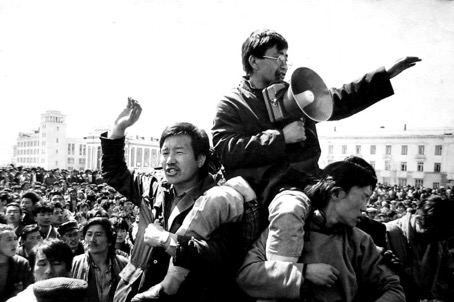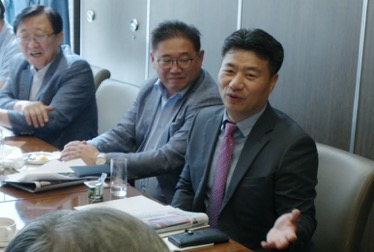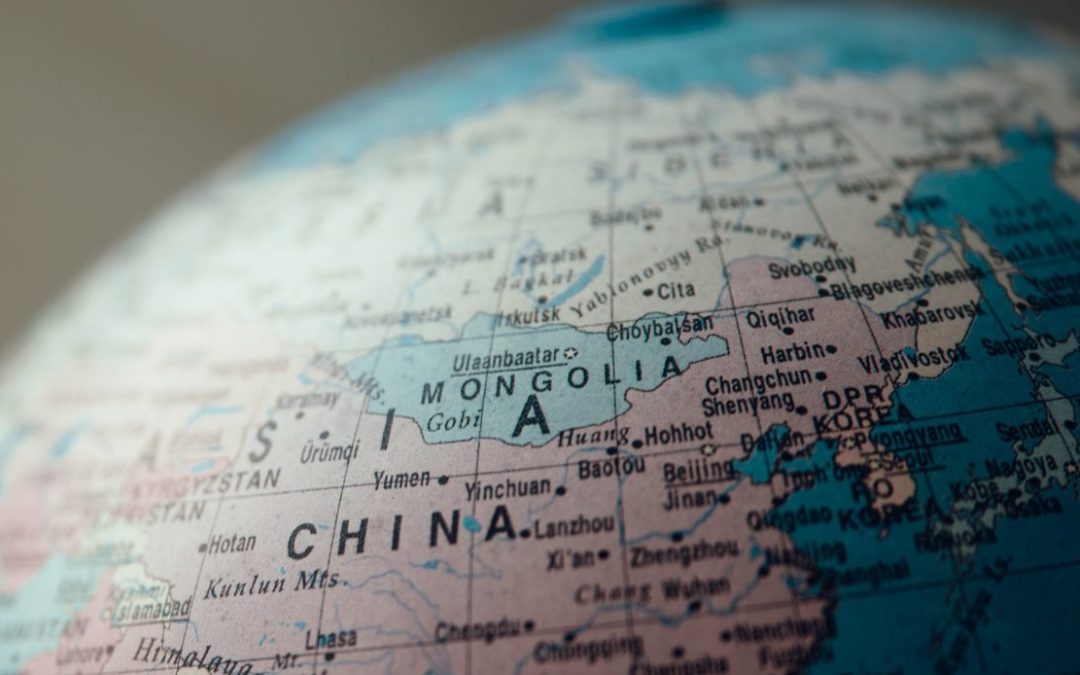From Gandhi’s Satyagraha-based push for Indian independence to Martin Luther King Jr.’s nonviolent Civil Rights Movement in the U.S., examples of peaceful resistance offer important lessons on peaceful nation-building. The following story highlights Mongolia’s remarkable and peaceful transition into a free, democratic nation at the close of the 20th century. The model can provide many useful lessons and insights in the work for peaceful reunification of the Korean peninsula.
From 1989 to 1990, the young people of Mongolia led large public rallies, protests and hunger strikes that played a key role in the peaceful transition of Mongolia from a communist state into a free, democratic nation. While there were many factors that led to this development, the nonviolent protests were critical for Mongolia’s transition in raising a generation of public-minded youth who were willing to engage in political and social processes for the good of the nation.
Today, Mongolia, despite its many challenges, remains committed to the democratic ideal with high rates of participation in free elections, a growing market economy and a strong commitment to human rights and freedoms.

Mongolian youth lead protests in 1990 led by movement leader Zorig.
Photo from democracyspeaks.org
The peaceful nature of the revolution has commanded the attention of scholars and activists who hope to apply the lessons from Mongolia towards efforts for a peaceful Korean reunification. Leaders from the International Republican Institute (IRI) and the Global Peace Foundation (GPF) co-hosted a meeting on such matters under the theme of “The Process of Peaceful Change in Mongolia and One Korea.”
Director of the Korean branch of IRI, Se-Hyuk Oh, emphasized the importance of involved civic leaders in the process of building one Korea saying, “In the midst of the rapidly changing situation on the Korean Peninsula, we meet with civic activists who are active in the unification of the Korean Peninsula…to strengthen their interests and find ways to cooperate.”
The gathering was one of many important discussions on engaging a grassroots, Korean-led movement for reunification. This was evident in the diverse civil society groups represented at the forum, which included representatives from:
- International Republican Institute (co-host)
- Global Peace Foundation (co-host)
- Action for Korea United
- Nehemiah Global Initiative
- Greater Korea Together (선진통일건국연합)
- National Strategy Institute, Chungnam National University
- Global Peace Institute
- Building the Future Together (미래를함께하는사람들)
In June 2018, GPF hosted a One Korea International Forum in Ulaanbaatar, Mongolia with scholars, parliamentarians, and civic leaders from Mongolia, China, Russia, U.S., and Korea. Together they explored the relatively peaceful political transition that took place in Mongolia in the 1990s. Of particular interest was how the country was able to maintain a strong commitment to human rights and freedoms amidst the strain of intense social, political and economic strains that inevitably arose during its transition. Scholars at the forum noted that Mongolia and North Korea had started in similar situations in the 1990s after the end of subsidies from the U.S.S.R. but had followed “markedly different” paths since.
Mongolia today can play a significant role in facilitating international cooperation between North and South Korea, eventually leading towards peaceful Korean reunification. As a nuclear-weapon-free state, Mongolia still benefits from the political assurances of the five recognized nuclear-weapon states. This, its central location at the heart of the East Asia and Mongolia’s friendly relations with both Koreas positions it to be uniquely qualified to make it a key partner in international meetings and consultations towards the building of a One Korea.

GPF Korea and IRI representatives discuss Korean reunification
This past meeting also underscored the importance of civil society in the process of reunification of the peninsula. The process of reunification needs to rest firmly in the hands of the Korean people. The nature of civil society organizations enables them to establish people-to-people connections, and find specialized and innovative solutions that address specific social issues. Civil society is a natural and crucial player in the process of reunification.
Even the unfavorable outcomes of the Mongol revolution can provide important lessons on pitfalls to avoid. Scholars expressed concern for the continuing division of Korea and how it would impact the future of the Korean peninsula, recounting how a lack of consensus between inner and outer Mongolia led to a loss of parts of Mongolia and the loss of the opportunity to consolidate a stronger overall sense of national identity.
Despite such setbacks, the articulation of this process highlights the importance of principles, shared values and engaged citizenry in building a truly free, prosperous nation. Even while the immediate future of Korean peninsula remains unclear, the lessons and support from Mongolian and other international partners will clearly be essential in the process of building a peaceful One Korea.
The original post appears on Global Peace Foundation. Global Peace Foundation is an international non-sectarian, non-partisan, nonprofit organization, which promotes an innovative, values-based approach to peacebuilding, guided by the vision of One Family under God. GPF engages and organizes a global network of public and private-sector partners who develop community, national, and regional peace building models as the foundation for ethical and cohesive societies. Dr. Hyun Jin Preston Moon is founder and chairman of the Global Peace Foundation.

